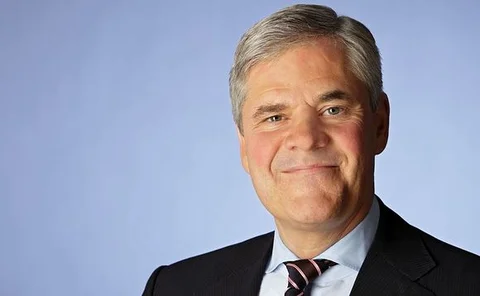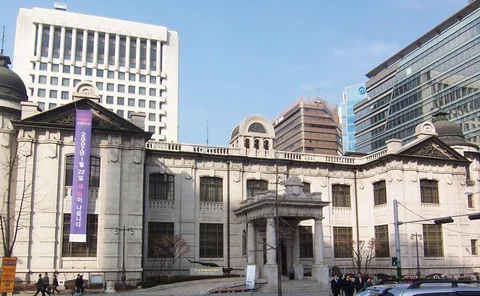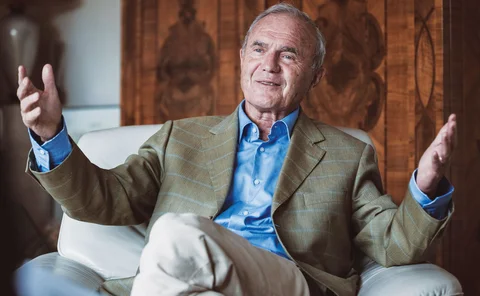International
IMF expands access to disaster funds
Economies are offered more generous thresholds for funding in the face of severe natural disasters
Extended monetary easing in US has larger impact abroad – paper
IMF paper examines the impact of periods of prolonged monetary easing on risk-taking behaviour; leverage ratio and other measures of vulnerability increase
HK researchers ask how much markets affect RMB fixing
Researchers test China’s assertion the exchange rate is now determined more by markets, finding mixed evidence
Politics now driving markets more than central banks – BIS review
“Precipitous decline” in correlations implies markets no longer in thrall to central bank policy; US dollar credit still on the rise despite MMF reform; tensions in Chinese markets
BIS paper tracks US and eurozone QE spillovers
Shadow rates approach helps authors show US QE spilled across borders more strongly, though impact differed between countries
Cross-border claims shifting in favour of non-banks
BIS international banking statistics show claims on banks fell in third quarter of 2016 but claims on non-banks continued to grow
Book notes: The International Monetary Fund: Distinguishing Reality from Rhetoric, by Graham Bird and Dane Rowlands
The book brings valuable rigour to bear in assessing the work of the IMF, but suffers from a reliance on ageing data in many places, says Jacek Klich
Turkish central bank acts to support lira as inflation jumps
Central bank launches fresh measures to counter “unhealthy price formations”; inflation surprise in December adds to pressure for monetary policy action
New data sheds light on policy spillover channels – BIS paper
Expanded data published by the BIS show how US dollar, euro and yen affect cross-border lending flows
BIS: markets less beholden to central bank action
Political shocks appear to have jolted markets into a more healthy state, but it is not yet clear if this is the start of normalisation or a temporary phase
Dombret paints gloomy picture of low rates’ impact on banks
Bundesbank board member spells out risks associated with low interest rate environment, noting banks are more likely to take risky assets onto their books the longer it prevails
Emerging markets hit harder by US rate hikes than domestic policy – Bank of Korea paper
US rate hikes have a larger impact on growth and financial flows in emerging markets than changes in domestic policy, researchers find
US affected by spillovers as well as causing them – Fed’s Fischer
Foreign developments can be a “substantial headwind” to US monetary policy, vice-chair says; hints at continued momentum towards a December rate hike
Central banks respond as markets roiled by Trump victory
Mexico hit by large capital outflows, while Swiss and Japanese central banks face large inflows; Federal Reserve likely to come under pressure
No ‘insidious’ German plan for EMU competitive advantage, says Issing
Otmar Issing says Germany didn't even have 'the economic intelligence' to design such a plan; country suffered years of high unemployment as others such as Italy failed to capitalise on price stability
Euro architect says ECB has ‘destroyed’ market discipline in Europe
Otmar Issing, the man who designed the operational framework for the euro, says failures by European politicians and the ECB mean “all the elements” are in place to bring “disaster” to the monetary union
US spillovers stronger for some countries than others – IMF paper
Paper assesses how US normalisation will spill across borders, identifying conditions where countries are most likely to be affected
ECB officials and Borio disagree on falling real rates
Vítor Constâncio and François Villeroy de Galhau emphasise importance of saving-investment mismatch, while Claudio Borio stresses financial cycle, but speakers find some points of agreement
Carney: green finance could help reverse long-run rate decline
Bank of England governor says green finance has the potential to send capital where it is most needed, and help advanced economies escape the problem of falling equilibrium interest rates
The Chinese G20 presidency may mark a turning point
Mark Uzan defends the oft-criticised G20 communiqué, arguing the Chinese presidency of the global group has created genuine progress
Japanese researchers model success and failure of international cooperation
Various factors can lead to cheating on global monetary policy cooperation, paper published by the BoJ finds – but careful design can help the agreement hold up
BIS paper digs into complex spillovers from US rates
Authors find short-run US rates have little impact on long-term rates elsewhere, but transmission at longer maturities and via bond markets is high
A year of progress for Chinese reforms, but there is much still to do
Pan Gongsheng, deputy governor of the People’s Bank of China, writes about China’s growth prospects, RMB exchange rate reform and the past years’ stock market fluctuations
Mexican deputy calls for reinforced ‘global financial safety net’
Javier Guzmán Calafell sees IMF as key player in maintaining global financial stability, but says it needs more resources, tools and legitimacy






















